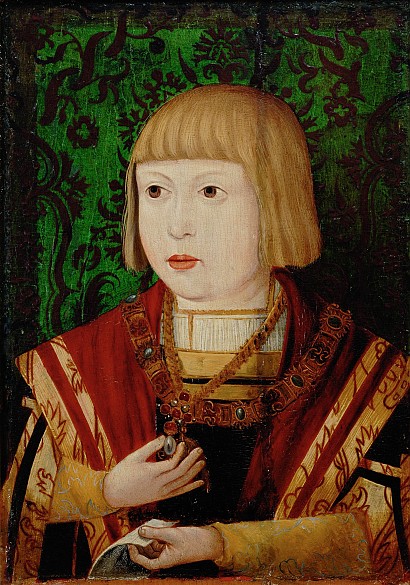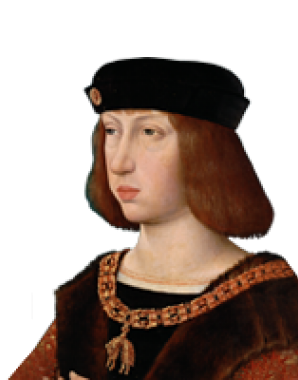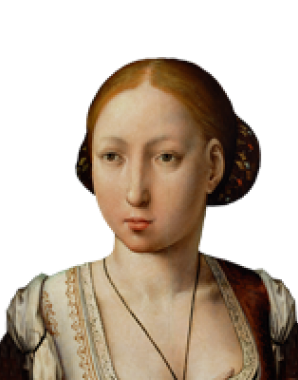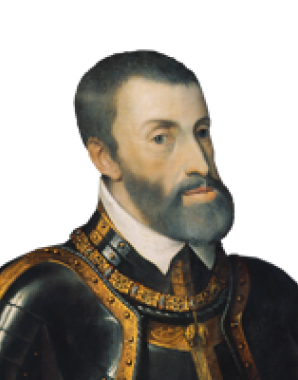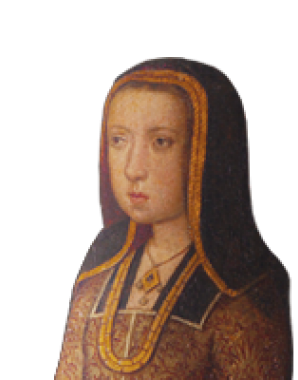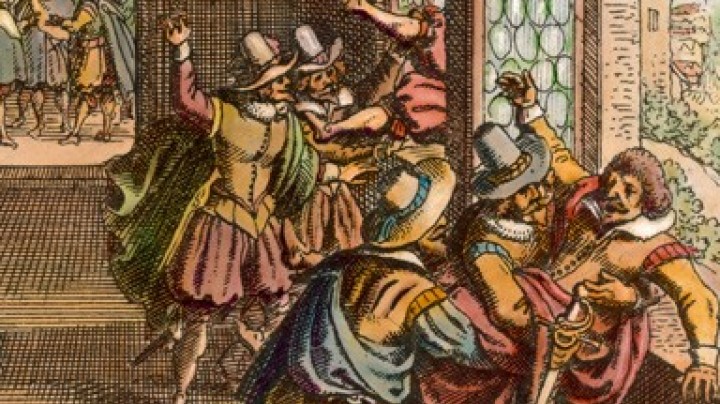Ferdinand I: overshadowed by his elder brother
Ferdinand was born in Spain on 10 March 1503. He was the younger son of Philip ‘the Fair’ of Habsburg and Joan (Juana), heiress to the kingdoms of Castile, Leon and Aragon, to whom posterity was to give the epithet ‘the Mad’.
Due to the early death of his father and the increasing mental instability of his mother, the young prince grew up in the care of his maternal grandparents in Spain. Ferdinand was thus Spanish to the core. Although his grandfather, King Ferdinand V of Aragon, thought a great deal of his grandson, when he died in 1516 the principle of primogeniture came into effect. The entire inheritance of the Spanish Empire, including its growing overseas territories, passed to the first-born son Charles.
The two brothers grew up apart, as Charles was brought up in the Netherlands. They did not meet until 1517, and subsequent relations between the two men were difficult. Ferdinand was quite clearly overshadowed by his brother. The rivalry and jealousy between them led to the younger brother avoiding confrontation by residing in the Netherlands, finding influential protection in his aunt Margarete, the governor of the province.
Eventually the rulership of the Austrian patrimonial dominions of the Habsburgs was handed over to Ferdinand in the Treaty of Worms in 1521. These comprised the ‘Nether Austrian group of dominions’, that is, Lower and Upper Austria, together with Inner Austria (Styria, Carinthia and Carniola). His domain was extended in 1522 in an initially secret agreement concluded in Brussels according to the terms of which Charles additionally transferred Tyrol and the Forelands (the ‘Upper Austrian dominions’) together with Württemberg to his brother. At that time these territories were of only peripheral interest to the dynasty, which had found its new focus in Spain, Italy and the Netherlands. Nonetheless Charles reserved extensive opportunities for influence for himself, regarding his brother more or less as his agent.
One of the reasons why the younger brother was invested with sovereign power was his marriage to Anna Jagiellon, the sister of the future King Louis II of Bohemia and Hungary. The Habsburg archduke was expected to have a position befitting his rank as a ruler over his own territories.
